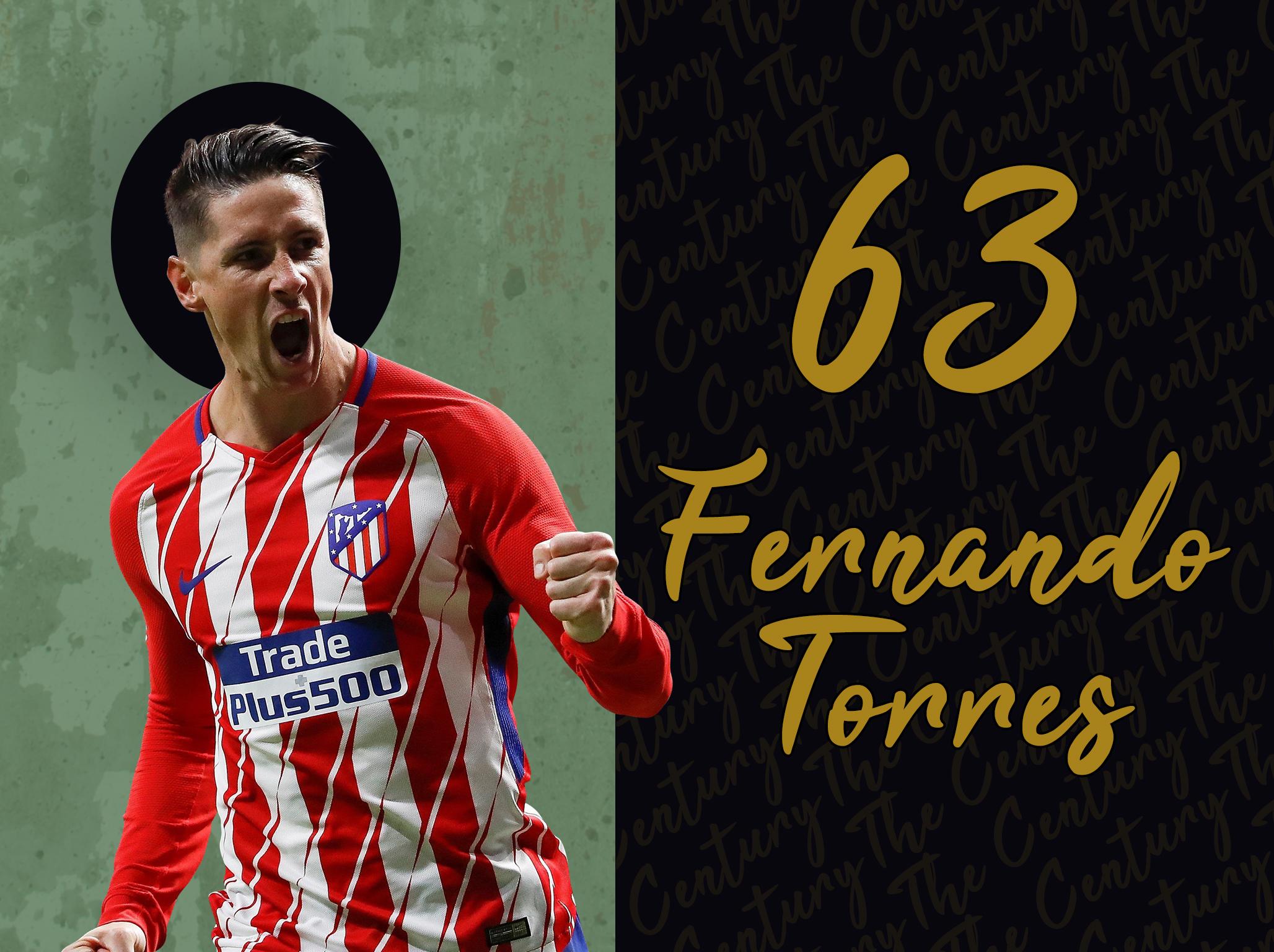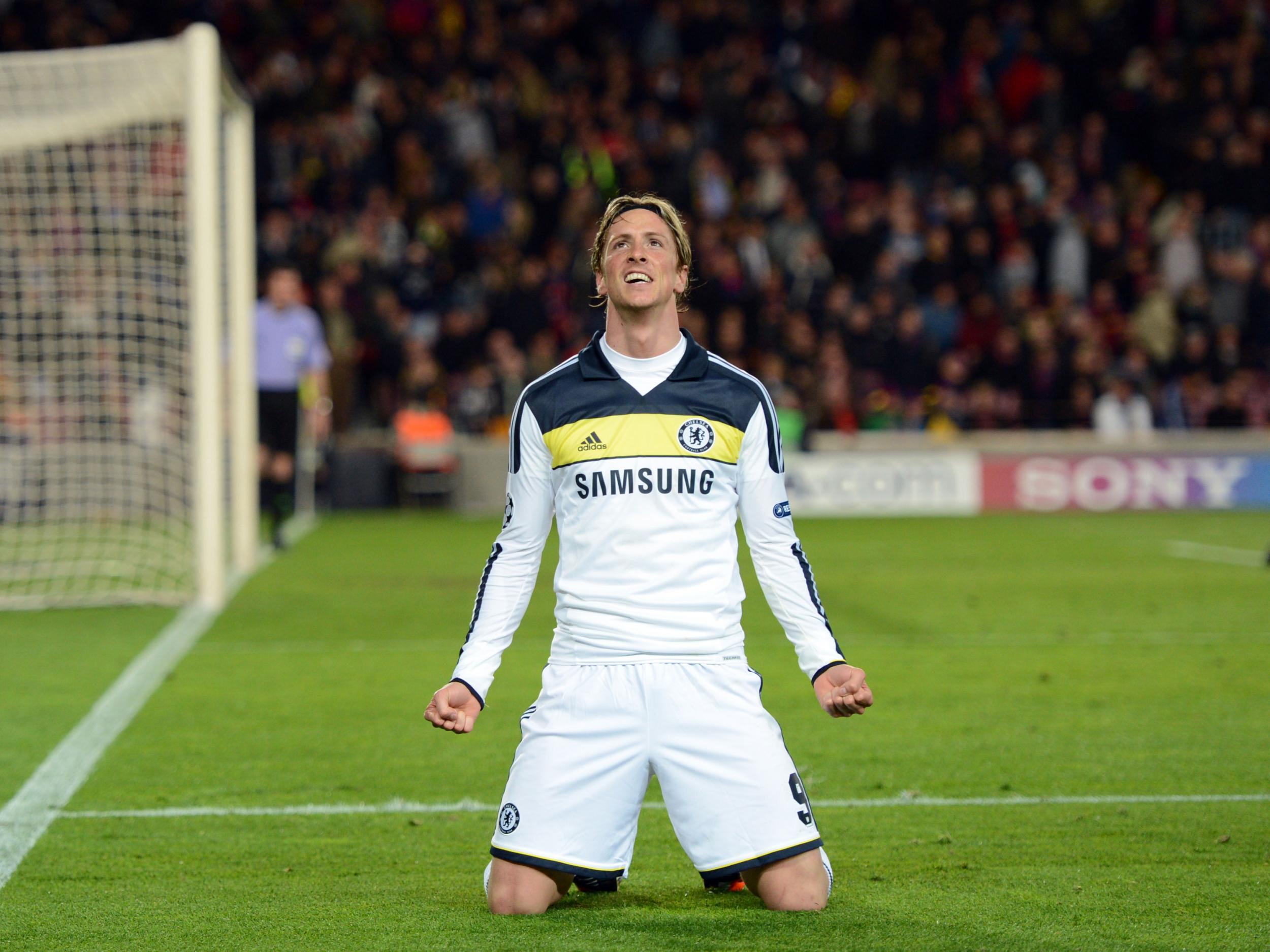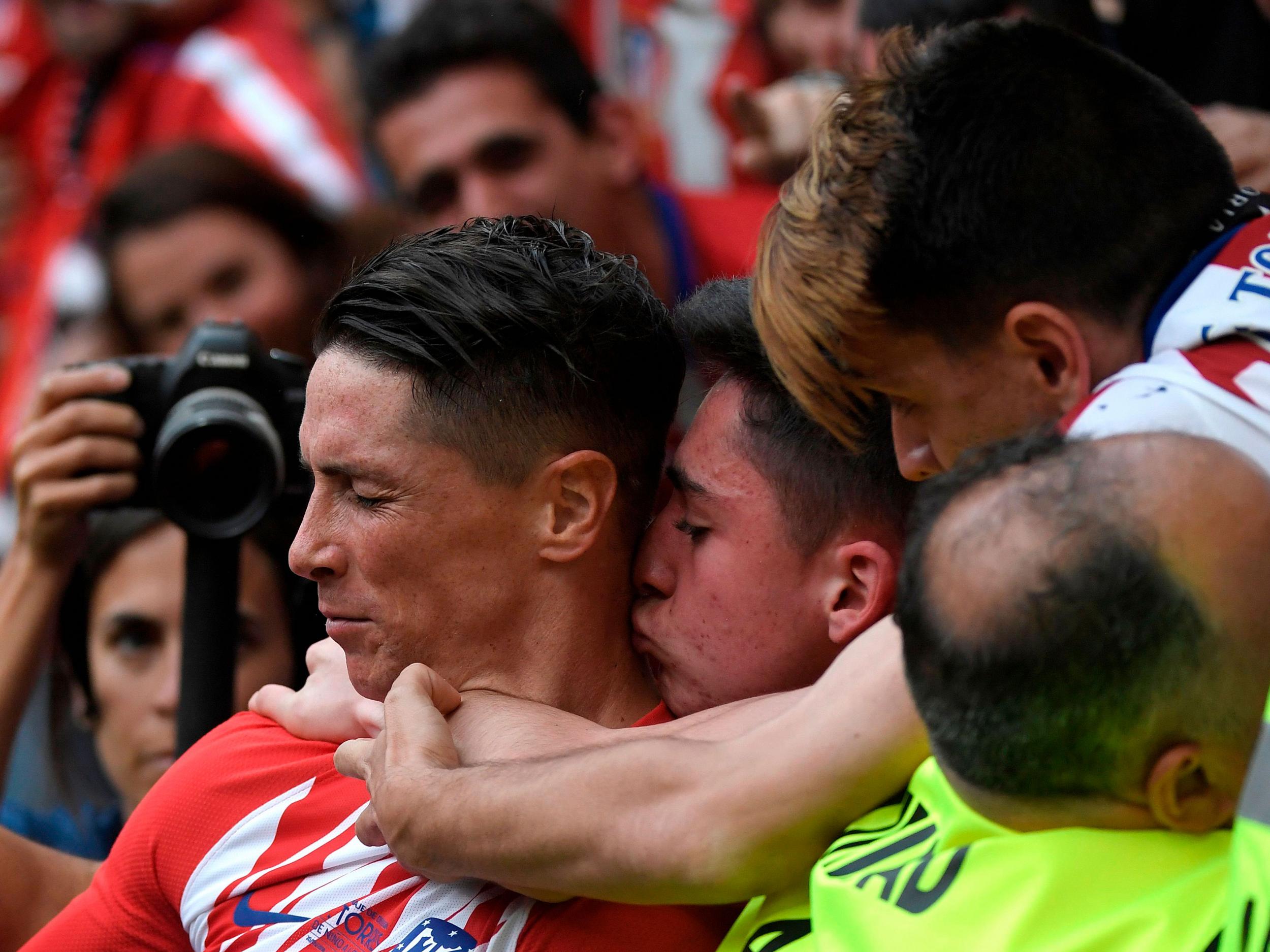The sad tale of Fernando Torres, a reluctant superstar
The Century: This week, The Independent is counting down the 100 best players of the last twenty years. Former Liverpool and Chelsea striker Torres is placed at 63 on our list

Your support helps us to tell the story
From reproductive rights to climate change to Big Tech, The Independent is on the ground when the story is developing. Whether it's investigating the financials of Elon Musk's pro-Trump PAC or producing our latest documentary, 'The A Word', which shines a light on the American women fighting for reproductive rights, we know how important it is to parse out the facts from the messaging.
At such a critical moment in US history, we need reporters on the ground. Your donation allows us to keep sending journalists to speak to both sides of the story.
The Independent is trusted by Americans across the entire political spectrum. And unlike many other quality news outlets, we choose not to lock Americans out of our reporting and analysis with paywalls. We believe quality journalism should be available to everyone, paid for by those who can afford it.
Your support makes all the difference.Back in 2008, Fernando Torres became the first player to finish third behind both Lionel Messi and Cristiano Ronaldo in their era of Ballon d’Or dominance. He had scored 38 times for Liverpool since the start of the previous season and six months earlier, his goal had ended Spain’s 44-year wait to win an international tournament. And yet, he was uncertain whether he belonged in the same room as the finest footballers on the planet.
“I could not believe I was nominated,” he told Simon Hughes in his book Ring of Fire: Liverpool Into The 21st Century, describing his “shock” that he was deemed important enough to be travelling by private jet. His club captain and friend Steven Gerrard reassured him, insisting that he deserved to win the award. Torres remembered Gerrard’s words, even if he did not quite believe them, adding: “He told me that like he really thought it.”
Call it imposter syndrome, a Jonah complex or a simple lack of self-esteem – perhaps any attempt at interpretation is an exercise in cod psychology – but at the very least, that episode offers us a window on how Torres saw himself when at the absolute peak of his powers. Even then, as a fresh-faced, befreckled goal-scoring phenomenon, he felt unworthy of the acclaim which his performances attracted.
Torres was not naturally drawn to football. His interest in the game only came about by watching anime series Captain Tsubasa – titled Oliver y Benji in Spain – and he has said he only started playing because his brother Israel “forced him”. Even his affection for Atletico Madrid came relatively late. He attended his first game – a 1-1 draw against Compostela – with his grandfather Eulalio in 1995, not long before his 11th birthday.
“I wasn’t hooked when I left the stadium,” he admits in his autobiography, recalling that first night at the Vicente Calderon. “It was cold, there wasn’t much excitement and the flat atmosphere in the stands didn’t help.” But only six years later, he was the club’s greatest hope while at their lowest ebb. With Atletico struggling to recover from relegation to the Segunda Division, Spain’s second tier, Torres was fast-tracked into the first team to placate supporters. The press described as a prodigy, a folk hero, a native son and a messiah. He was 17.
Once he had helped Atletico return to the top flight, Torres was named the club’s youngest-ever captain. Aged 19, he has said it was a responsibility he “should never have taken on so young”. He struggled to command authority over his elders, instead leaning heavily on the experience of team-mate Carlos Aguilera, but this added burden did not stop him from scoring in double figures every season at the Vicente Calderon. He stayed for seven in total, far longer than many fans expected.
Then came Liverpool, where Torres’ career cleaved into two distinct halves. The first is filled with goals like that against Marseille at the Stade Velodrome in late 2007, which incorporated every aspect of his supreme ability as a all-round centre-forward. There is the first touch which leaves Lorik Cana for dead, the shift of weight which flummoxes Julien Rodriguez, the low finish which evades Gael Givet’s attempt at a sliding tackle, then the joyous boyish skip as he watches the ball run into the far corner.
It is a brilliant individual goal, not dissimilar from his first for Liverpool against Chelsea a few months earlier or one at Derby County a couple of weeks later. From a technical perspective, it is possibly the best of all those he scored during his time at Anfield, but one that the player is not overly fond of. “Individual goals are often the most striking and skilful,” Torres said, “but I don’t think they’re the most beautiful.” Again, the reluctant superstar was playing down his own brilliance.
If this first part of Torres’ career is why he is in this list, the second is why he is less than halfway up it. He had already suffered persistent hamstring injuries in the spring of 2010 when he decided to undergo surgery on a knee injury in an attempt to be fit for the World Cup. He rushed back, struggled for form, was dropped by Vicente del Bosque after the quarter-finals and then suffered yet another injury in extra time during the final.

From thereon, things were never quite the same. Torres’ struggles to rediscover form and his anxiety to win trophies while still in his prime combined with the disastrous ownership of Tom Hicks and George Gillett to produce a messy Anfield divorce. The takeover by Fenway Sports Group in October 2010 could not salvage the situation and it was reported in January that Torres had effectively handed in a transfer request. His own version of events is different. He wanted assurances from senior figures at Anfield that he was part of the club’s future but received none. He felt unwanted.
If that seems hard to believe, it at least chimes with a player who did not always fully appreciate his own talents or how much those talents were appreciated. It is also supported by comments from FSG’s former general counsel, Edward Weiss, who would suggest that Liverpool’s new owners considered Torres to be past his best. Weiss was speaking in 2016. His remarks may have been pure hindsight. But if FSG did see a player in decline, they were right to.
The acrimonious £50m move to Chelsea followed. A modest record of 45 goals in 172 appearances masks a collapse which saw Torres go from that blonde streak of goal-scoring menace and intent to a hollow, forlorn figure, ill-suited to the system and style of play around him, with his head hung low and shoulders buckling under the weight of expectation. It is rare for a player’s misfortunes to be met with anything other than mockery in modern football, and Torres did not escape ridicule by any means, but there was also a genuine sadness about the speed and scale of his decline.
The bitterness and rancour he inspired on Merseyside after his departure seemed to affect him more than anything else. He still had a great affection for the club, the fans and his time there. In 2014, as if to confirm he was no longer the dead-eyed sharpshooter he once was, he appeared to decide against scoring Chelsea's second goal at Anfield in the famous win which scuppered Liverpool's title challenge. If it was intended as an olive branch, it worked. When he returned for Steven Gerrard's testimonial a year later, the crowd sang his old song again.
It would be wrong to suggest Torres’ post-2011 career passed without merit or achievement. He won much of his career silverware during those later years. He was named the top scorer at Euro 2012, albeit with only three goals and on a tie-break. He lifted his first trophy with Atletico in his penultimate game for the club. Ask Chelsea supporters, meanwhile, and they will forgive his underwhelming returns for the one goal that mattered most: at the Camp Nou, to book their place in that year’s Champions League final.

Watch the goal back and it is vintage Torres, right from the touch which plucks a long, aimless defensive clearance out from the sky. For a player whose confidence and mentality were persistently questioned, he approaches the 50-yard dash towards Victor Valdes’ goal without a hint of hesitation. Once there, there is the familiar shift in balance, allowing him to round the goalkeeper and finish. It may well be his club career’s finest moment.
He announced his retirement from football in June, having spent his final season playing with Sagan Tosu in Japan, the home of Captain Tsubasa. The previous summer, he had said goodbye to Atletico and to European football, signing off in typically self-effacing fashion with the words: “Thanks for so much and sorry for [giving] so little.”
It felt like an unnecessarily modest farewell. Not only had Torres just won the Europa League with Atleti, but the money generated from his sale had kick-started a golden era in the club's history. This was a player who had won the World Cup and two European Championships for his country, as well as a Champions League title abroad. He had become a legendary figure at Atletico and was once similarly idolised on Merseyside. He was briefly considered as one of the best in the world, behind only Messi and Ronaldo. But when you remember the player that Torres once was, it is hard not to agree that he could have been so much more.
The Century
This week, we are counting down the 100 greatest players of the 21st century, revealing 20 per day until the winner is announced on Friday.
We asked 10 of our football writers to select 50 players, with each pick awarded points contributing to a final score.
Join us throughout the week for a wide selection of exclusive interviews and features, as we celebrate the best players of the last twenty years.
Join our commenting forum
Join thought-provoking conversations, follow other Independent readers and see their replies
Comments